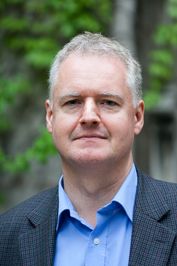Michael N. Forster
Website

|
Hegel's Idea of a Phenomenology of Spirit
—
published
1998
—
2 editions
|
|

|
Kant and Skepticism (Princeton Monographs in Philosophy)
—
published
2008
—
8 editions
|
|

|
After Herder: Philosophy of Language in the German Tradition
—
published
2010
—
5 editions
|
|

|
Wittgenstein on the Arbitrariness of Grammar
—
published
2004
—
8 editions
|
|

|
The Cambridge Companion to Hermeneutics
by |
|

|
German Philosophy of Language: From Schlegel to Hegel and beyond
—
published
2011
—
7 editions
|
|

|
Hegel and Skepticism
—
published
1989
—
4 editions
|
|

|
شلایرماخر
by |
|

|
The Oxford Handbook of German Philosophy in the Nineteenth Century
by
—
published
2015
—
5 editions
|
|

|
Herder's Philosophy
|
|
“To put the point facetiously, one could say that Hegel began his career a Marxist and later became a Hegelian.”
― Hegel's Idea of a Phenomenology of Spirit
― Hegel's Idea of a Phenomenology of Spirit
“Although Droysen denies that causal explanation is a sufficient condition for the understanding of a human action, he does regard it as a necessary condition. In his Grundriß der Historik he distinguishes between four different forms of interpretation or understanding.15 First, there is pragmatic interpretation, which reconstructs causal context behind an event (§39). Second, there is the interpretation of conditions, which analyzes the specific conditions – whether physical or moral – that make an action possible (§40). Third, there is psychological interpretation, which determines the motives for a person’s action (§41). Fourth and finally, there is interpretation of ideas, which determines the general principles or ideals behind someone’s action (§42). Although Droysen writes of them as different kinds of interpretation, it is clear that he thinks all of them are necessary for a full understanding of human action. Dilthey,”
― The Cambridge Companion to Hermeneutics
― The Cambridge Companion to Hermeneutics
“What is required of philosophical research is that it be a critique of the present. In disclosing the past in an original manner, the past is no longer seen to be merely a present that preceded our own present. Rather, it is possible to emancipate the past so that we can find in it the authentic roots of our existence and bring it into our own present as a vital force. Historical consciousness liberates the past for the future, and it is then that the past gains force and becomes productive.”
― The Cambridge Companion to Hermeneutics
― The Cambridge Companion to Hermeneutics
Is this you? Let us know. If not, help out and invite Michael to Goodreads.












